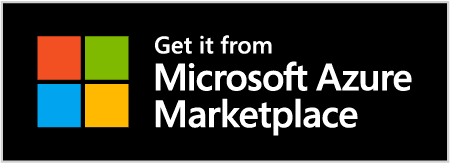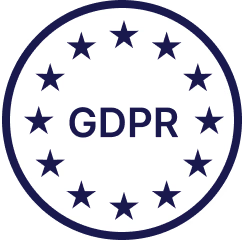Ransomware
Pharma Research Firm Inotiv Confirms Massive Data Breach Following Qilin Ransomw...
**WEST LAFAYETTE, Ind. & BOSTON, Mass.** — Inotiv Inc. (NOTV), a pivotal contract research organization in the pharmaceutical development pipeline, has formally confirmed a significant data breach impacting nearly 10,000 individuals. The breach stems from a ransomware attack executed by the Qilin cybercrime group in early August 2025, culminating in the theft of highly sensitive personal, financial, and health information.
The disclosure, made through mandatory regulatory filings with the U.S. Securities and Exchange Commission (SEC) and a detailed notice to the Maine Attorney General, provides a stark case study in the modern cyber threat landscape. It illustrates a targeted assault on a scientific enterprise where the compromise of data carries profound ethical, legal, and operational consequences beyond immediate financial ransom.
#### **Timeline of a Targeted Intrusion**
The incident unfolded through a precise sequence of intrusion, discovery, and investigation, characteristic of a professionally executed ransomware operation.
| **Date** | **Event Phase** | **Key Action & Details** |
| :--- | :--- | :--- |
| **Aug 5-8, 2025** | **Initial Compromise & Encryption** | Qilin operatives gained access, deployed ransomware, and exfiltrated data. |
| **Aug 8, 2025** | **Discovery & Containment** | Inotiv’s internal security team identified the attack, contained affected systems, and initiated forensic procedures. |
| **Aug 18, 2025** | **Regulatory Disclosure** | Inotiv filed an 8-K form with the SEC, publicly acknowledging a cybersecurity incident that disrupted operations. |
| **Oct 21, 2025** | **Data Analysis Completed** | Forensic investigators concluded data review, confirming the scope and sensitivity of stolen information. |
| **Dec 2-3, 2025** | **Individual Notification** | Inotiv began notifying 9,542 affected individuals and submitted official breach details to the Maine AG. |
#### **The Core of the Breach: A Treasure Trove of Sensitive Data**
Moving beyond operational disruption, the forensic investigation revealed the attack's true severity: the successful exfiltration of approximately 162,000 files totaling 176 GB. The stolen data constitutes a comprehensive dossier on affected individuals, including:
* **Personally Identifiable Information (PII):** Full names, addresses, and crucially, Social Security Numbers (SSNs) and government-issued identification numbers.
* **Financial Data:** Credit and debit card numbers.
* **Protected Health Information (PHI):** Medical records, health insurance details, and associated medical data.
The population impacted includes current and former employees, their family members, and other associated individuals, indicating that the attackers exfiltrated data from broad-based human resources and administrative systems.
#### **Corporate and Legal Response**
In response, Inotiv has engaged a multi-pronged strategy focusing on remediation, legal compliance, and victim support:
1. **Technical Remediation:** The company contained the incident, restored systems from secure backups, and implemented "additional enhanced security measures." Law enforcement, including the FBI, was notified.
2. **Regulatory Compliance:** The company fulfilled its obligation under the SEC's new cybersecurity disclosure rules and state laws, formally reporting to the Maine Attorney General—a common requirement when breaches affect over 1,000 residents of a state.
3. **Victim Mitigation:** Inotiv is offering affected individuals **24 months of complimentary credit monitoring and identity restoration services** through Kroll, a standard but critical remediation step. The offer notably exceeds the 12-month period seen in many other breaches, such as the contemporaneous incident at Jack's Family Restaurants.
#### **Nuanced Implications: Why This Breach Resonates**
The Inotiv breach is not an isolated IT failure but a symptom of systemic vulnerabilities within high-stakes industries:
* **Strategic Targeting of Life Sciences:** Attackers increasingly focus on pharmaceutical and research organizations due to their valuable intellectual property, sensitive human trial data, and pressing operational timelines, which may increase pressure to pay ransoms.
* **The "Double Extortion" Playbook:** Qilin's method—encrypting systems *and* stealing data—represents the now-standard double-extortion model. The threat of leaking sensitive health data adds a powerful layer of coercion against a HIPAA-regulated entity.
* **The Expanding Surface of Third-Party Risk:** As a Contract Research Organization (CRO), Inotiv is a vital third-party partner to numerous pharmaceutical companies. This breach exposes the cascading risk within the industry's ecosystem, where a compromise at one service provider can threaten the security posture of multiple major firms.
The incident has already triggered investigations by plaintiff's law firms for potential class-action litigation, citing possible failures to implement adequate cybersecurity measures. This legal aftermath, combined with regulatory scrutiny, will define the long-term cost of the breach far beyond the initial ransom demand.
*For individuals notified by Inotiv, cybersecurity experts strongly recommend enrolling in the offered credit monitoring, placing fraud alerts with national credit bureaus, and remaining vigilant against sophisticated phishing attempts that may leverage the stolen personal data.*






